Nibali happy to send Kangert up the road at Ivrea
Sicilian on the strengths and weaknesses of his Astana team
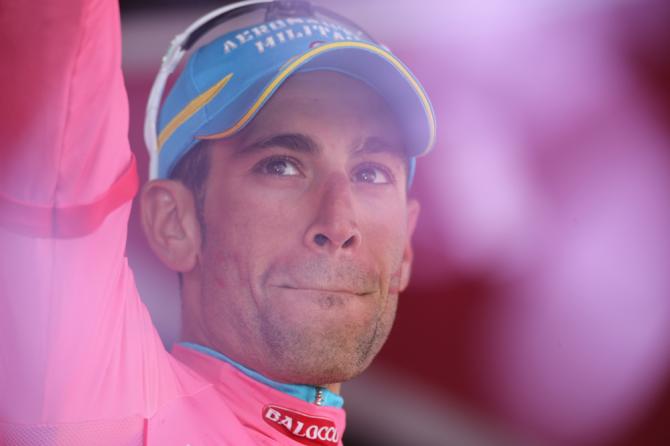
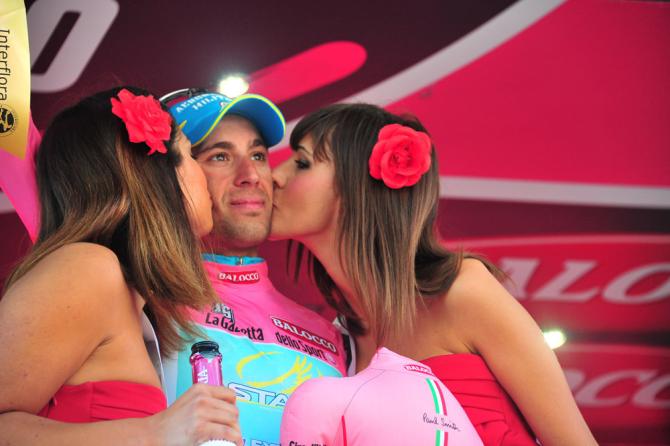
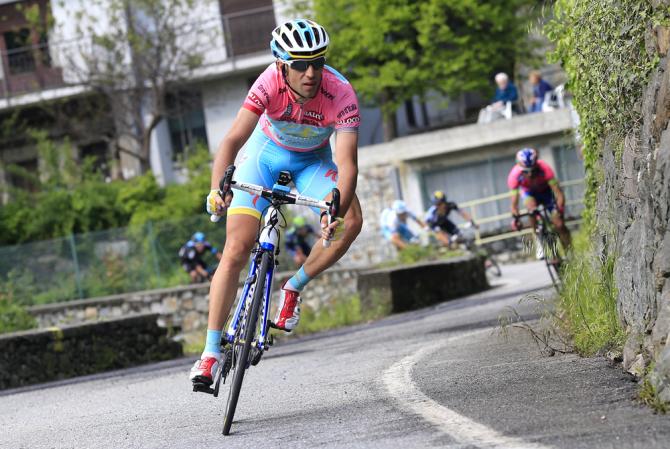
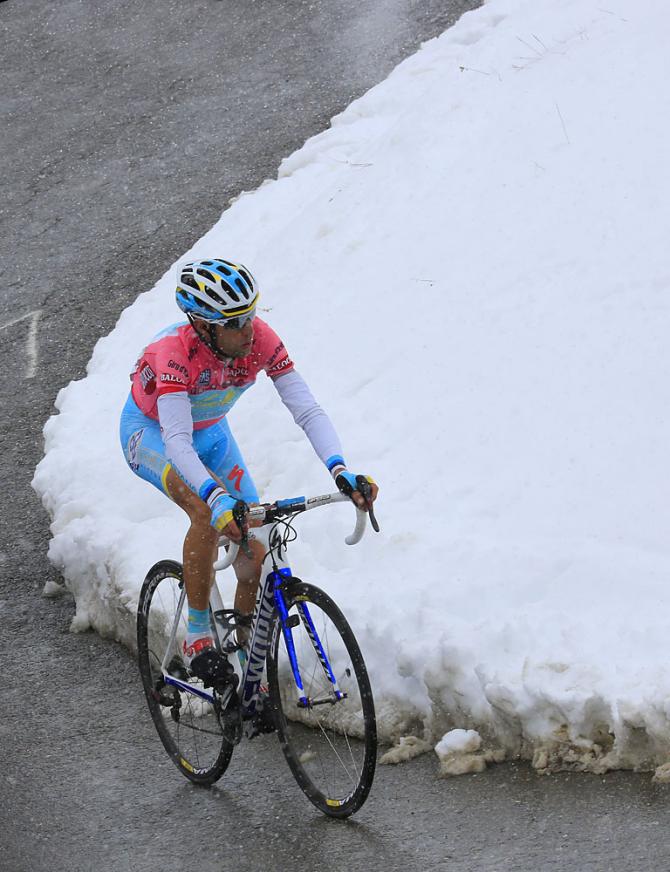
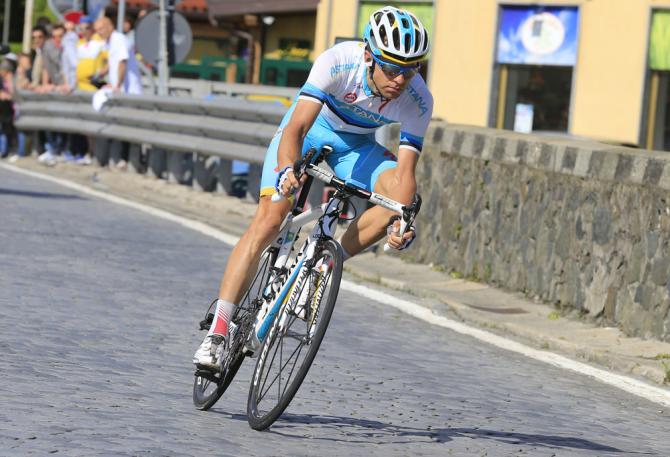
Since taking the maglia rosa at the end of week one, Vincenzo Nibali’s mantra has been that there are no easy days at the Giro d’Italia, and that truism was borne out as hostilities resumed after the rest day.
238 kilometres in length and featuring the early ascent of Mont Cenis, stage 16 to Ivrea seemed destined to see an echapée matinale fight over the spoils, but instead the race came together for a tense finale that saw the general classification contenders come to the fore on the final climb of Andrate, 18km from the line.
Michele Scarponi (Lampre-Merida) put in a brace of accelerations as the gradient kicked up to 13 percent, but Nibali was quick to respond, while the fast descent saw a flurry of attacking from the elite leading group. When the dust settled, however, the Astana rider conceded no ground to his rivals, who finished grouped 14 seconds down on stage winner Benat Intxausti (Movistar), and he remains 1:26 clear of Cadel Evans (BMC) in the overall standings.
“We were coming from the rest day and a lot of riders had time to catch their breath yesterday and recover,” Nibali said. “At the start of the stage, a lot of riders were looking either to get in the early break or take the mountains points, like Stefano Pirazzi, so it was hard from the start. Whether it’s the Tour de France or the Giro, every day is hard, like you saw today.
“We actually wanted to let the early break stay away but it was a big group and they mustn’t have been collaborating well, as their lead was never more than around three minutes.”
Relatively isolated by his Astana team in the earlier part of the Giro, Nibali was able to rely on two teammates in the finale on Tuesday – Estonian champion Tanel Kangert and Sardinian youngster Fabio Aru. Kangert finished second on the stage after he clipped off the front on the approach to Ivrea in the company of Intxausti and Przemyslaw Niemiec (Lampre-Merida), and Nibali explained that he did so with his blessing.
“Kangert wanted to try and win the stage and I agreed because we haven’t won a stage yet and I wanted him to take away the bonus seconds from the others,” Nibali said. “He’s been doing a very good race so far, as he showed when he stayed with me on the Galibier.”
The latest race content, interviews, features, reviews and expert buying guides, direct to your inbox!
By contrast, Paolo Tiralongo and Fredrik Kessiakoff – the two men who were expected to be Nibali’s chief lieutenants in the mountains – were again marked absent from the pink jersey group when the selection took place on the final climb.
“Fredrik is maybe missing a little bit but he still worked hard in the first part of the stage. He’s done that in the last few days and we’ll see if he’s able to stay with me on the climbs for longer later in the week,” Nibali said. “As for Paolo, he hasn’t recovered well from the flu he had earlier in the Giro, but he worked a lot early on today too. So in a way, we’ve swapped some roles around in the team.”
Nibali himself hit the front at one point on the twisting descent of the Andrate but he explained that his was a watching brief. Living to the maxim that he is tomorrow what he establishes today, Nibali saw little sense in taking risks when there were still nine kilometres of flat to follow before the finish.
“The surface was good but there were a few wet sections and I don’t like descents where you pass from dry roads to wet and back again, as you risk crashing,” he said. “It was only when Scarponi made a mistake on a corner that I came past him, but I was just closing a gap rather than trying to open one.”
Before taking his leave, Nibali was asked for his take on the polemica that has developed over stage 15, when the peloton opted to ride a steady tempo on the climb of Mont Cenis, to the chagrin of Bardiani-CSF Inox directeur sportif Roberto Reverberi, who labelled Filippo Pozzato (Lampre-Merida) a “Mafioso” for his part in allegedly organising the go-slow.
“It had been decided that we would go steady up the climb, but when Reverberi came up to the front, he found a few sprinters up front like Pozzato, Hunter, Fischer, Gatto and Paolini, and he called them Mafiosi,” Nibali said. “But nobody wanted to go hard at the start and risk missing the time cut.”

Barry Ryan was Head of Features at Cyclingnews. He has covered professional cycling since 2010, reporting from the Tour de France, Giro d’Italia and events from Argentina to Japan. His writing has appeared in The Independent, Procycling and Cycling Plus. He is the author of The Ascent: Sean Kelly, Stephen Roche and the Rise of Irish Cycling’s Golden Generation, published by Gill Books.